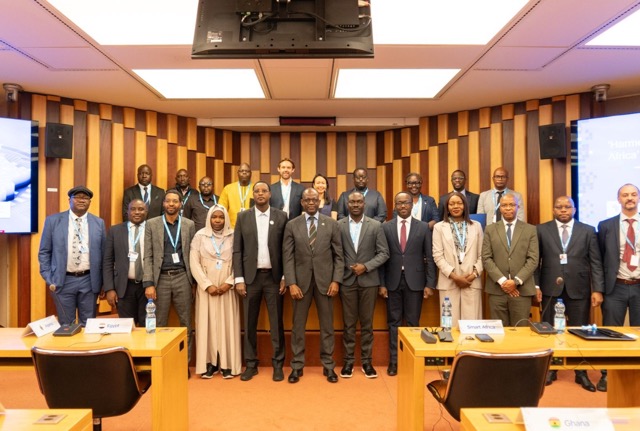LemFi, the London-based fintech startup that’s been quietly building one of Africa’s most comprehensive international payment networks, just dropped its biggest expansion move yet—launching services into Egypt’s massive $20.6 billion remittance market.
The move isn’t just another market entry; it’s a calculated play for one of the world’s most lucrative remittance corridors. Egypt’s remittance inflows nearly doubled in 2024, making it a prime target for fintech companies looking to capture cross-border payment volumes that traditional banks have dominated for decades.
Following the money trail
LemFi’s expansion into Egypt adds the country to its growing roster of over 30 destinations, joining North African markets like Morocco and Tunisia in what’s becoming a comprehensive regional strategy. But Egypt represents something bigger—it’s home to one of the world’s largest diasporas, with millions of Egyptians working across Europe, the Gulf, and North America.
“Egypt’s significance as a remittance destination cannot be understated. In recent years, the corridor has experienced consistent growth,” said Philip Daniel, Head of Global Expansion and Growth at LemFi. “Whether in LemFi’s existing markets or other markets that align with our global expansion ambitions, the Egyptian diaspora is significant, and they deserve quality service, such as the one we offer.”
The numbers back up the hype. Egypt’s $20.6 billion in remittances for 2024 represents nearly double the previous year’s flows, highlighting both the scale of opportunity and the urgent need for more efficient transfer solutions. For context, that’s more than many African countries’ entire GDP.
Taking on the incumbent giants
LemFi’s Egypt play puts it in direct competition with established players like Western Union, MoneyGram, and regional fintech competitors. But the startup, which has attracted over 2 million users globally, is betting that its digital-first approach and competitive pricing will win over cost-conscious diaspora communities.
The company’s timing couldn’t be better. Traditional money transfer operators have faced increasing pressure from digital-native competitors offering lower fees, faster transfers, and more transparent pricing. LemFi’s entry into Egypt signals its confidence that it can capture meaningful market share in one of the world’s most established remittance corridors.
The bigger North African play
Egypt’s addition to LemFi’s network isn’t happening in isolation. The startup has been systematically building coverage across North Africa, creating what amounts to a comprehensive regional payment infrastructure. This strategic approach allows LemFi to capture flows between multiple North African markets while also serving the diaspora communities in Europe and North America.
The regional strategy makes sense from a technical standpoint too. By building robust infrastructure across North Africa, LemFi can leverage shared compliance frameworks, regional banking partnerships, and economies of scale that make expansion more efficient than entering markets one by one.
What this means for the remittance wars
LemFi’s Egypt expansion is part of a broader trend of fintech companies targeting high-value remittance corridors that were previously dominated by traditional operators. Companies like Wise (formerly TransferWise), Remitly, and WorldRemit have all been aggressively expanding into emerging markets where remittance flows are growing rapidly.
The competition is heating up precisely because the opportunity is massive. The World Bank estimates that global remittance flows will continue growing, with digital adoption accelerating the shift away from traditional cash-based transfers.
Looking ahead
For LemFi, Egypt represents both a massive opportunity and a significant test. Success in Egypt could validate the company’s regional expansion strategy and provide a template for similar moves into other high-value remittance markets. Failure, on the other hand, could signal that established players have stronger competitive moats than many fintech startups assume.
The company’s ability to navigate Egypt’s regulatory environment, build local partnerships, and compete on both price and service quality will be crucial indicators of its long-term expansion prospects.
With over 2 million users already on its platform, LemFi has the scale to make a meaningful impact in Egypt’s remittance market. The question now is whether it can convert that opportunity into sustainable market share in one of the world’s most competitive payment corridors.












